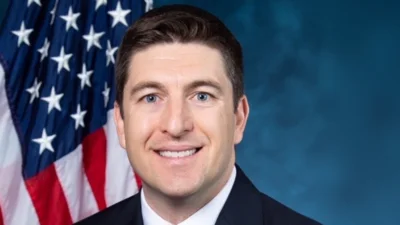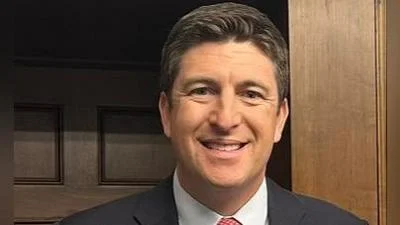Mark Spreitzer, Illinois State Senator for 15th District | www.facebook.com
Mark Spreitzer, Illinois State Senator for 15th District | www.facebook.com
According to the Wisconsin State Legislature's official website, the bill was described as follows: "eligibility for Family Care for individuals who are deaf-blind. (FE)".
The following is our breakdown, based on the actual bill text, and may include interpretation to clarify its provisions.
In essence, this bill amends the eligibility criteria for the Family Care program in Wisconsin, expanding functional eligibility to include individuals who are deaf-blind. Family Care provides community-based long-term care services, and currently, individuals must be at least 18 years old, have a physical or developmental disability or be a frail elder, and meet certain functional and financial criteria to qualify. By adding a provision that explicitly states a person who is deaf-blind qualifies as functionally eligible, the bill aims to ensure that this group has access to the program's support and services.
The bill was co-authored by Representative Ann Roe (Democrat-44th District), Senator Kristin Dassler-Alfheim (Democrat-18th District), Senator Dora E. Drake (Democrat-4th District), Senator Dianne H. Hesselbein (Democrat-27th District), and Senator Sarah Keyeski (Democrat-14th District). It was co-sponsored by Representative Clinton M. Anderson (Democrat-45th District), Representative Margaret Arney (Democrat-18th District), and Representative Mike Bare (Democrat-80th District), along with 21 other co-sponsors.
Mark Spreitzer has co-authored or authored another 72 bills since the beginning of the 2025 session, with one of them being enacted.
Spreitzer graduated from Beloit College in 2009 with a BA.
Spreitzer, a Democrat, was elected to the Wisconsin State Senate in 2023 to represent the state's 15th Senate district, replacing previous state senator Janis Ringhand.
In Wisconsin, the legislative process starts when a senator, constituent, group, or agency proposes an idea for a bill. After drafting, the bill is introduced, numbered, and referred to a committee for review and public input. If approved, it moves through three readings and votes in both the Senate and Assembly. Once both chambers pass the same version, the bill goes to the governor, who can sign it, veto it, or let it become law without a signature. Only a small share of bills introduced each session ultimately become law. You can learn more about the Wisconsin legislative process here.
| Bill Number | Date Introduced | Short Description |
|---|---|---|
| SB272 | 05/21/2025 | Eligibility for Family Care for individuals who are deaf-blind. (FE) |
| SB233 | 04/29/2025 | Inducements to sign or refrain from signing nomination papers, recall petitions, and certain other petitions |
| SB223 | 04/25/2025 | Discrimination in employment, housing, public accommodations, education, insurance coverage, national guard, jury duty, and adoption and in the receipt of mental health or vocational rehabilitation services |
| SB217 | 04/16/2025 | Eliminating the publication requirement for a name change petition seeking to conform an individual’s name with the individual’s gender identity |
| SB185 | 04/14/2025 | Property tax exemption for nonprofit theaters. (FE) |
| SB149 | 03/21/2025 | Requiring the legislature to convene an extraordinary session if an executive order of the president of the United States freezes federal aid to the state |
| SB60 | 02/21/2025 | Expanding the homestead income tax credit. (FE) |





 Alerts Sign-up
Alerts Sign-up